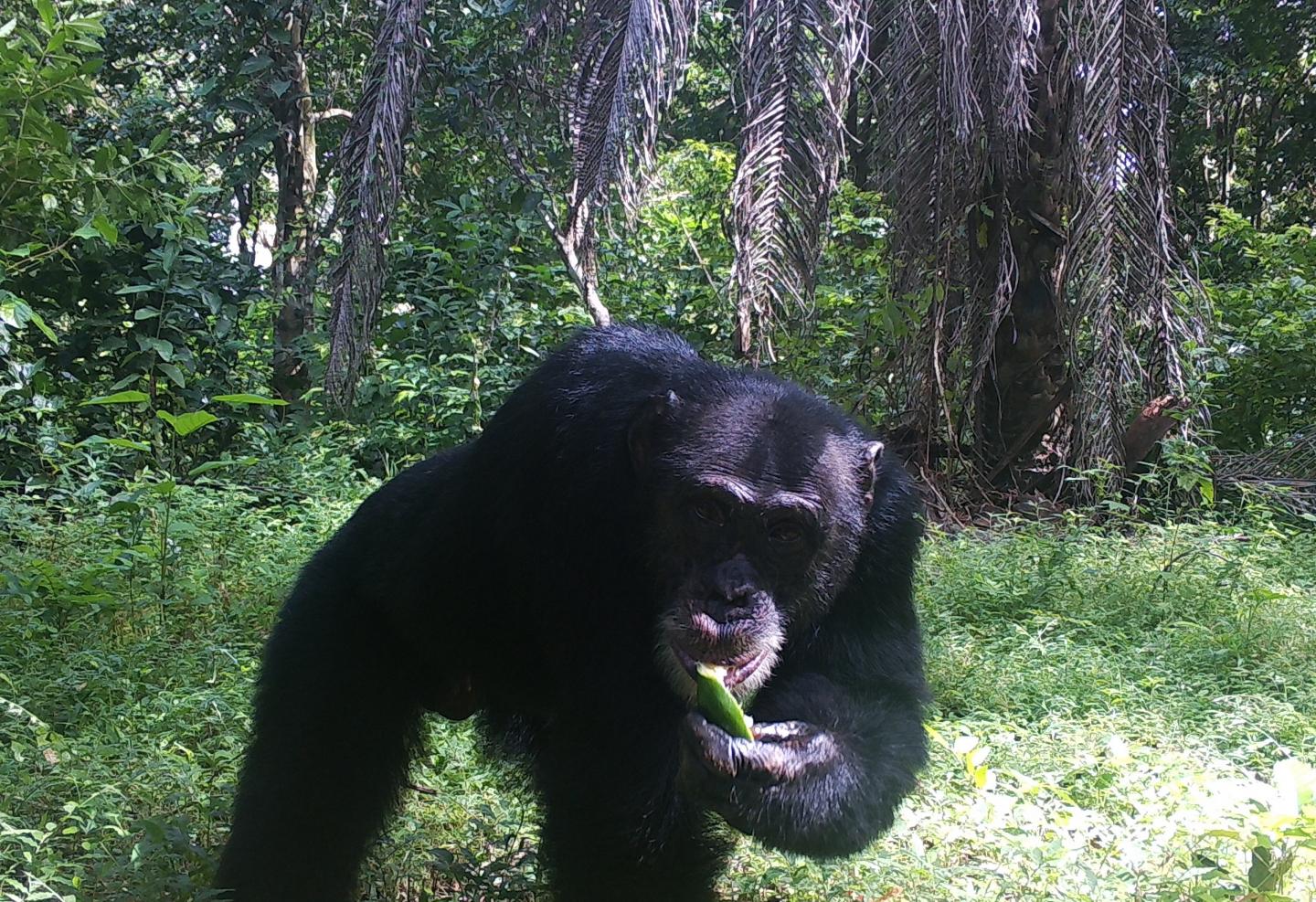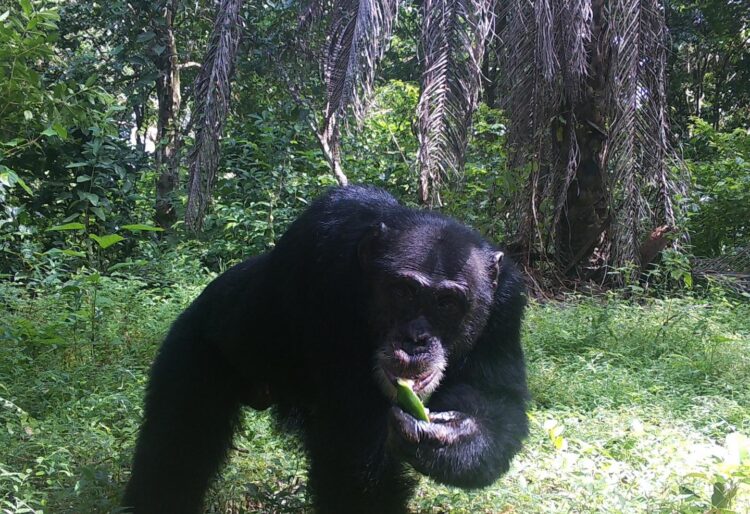
Credit: E Bersacola and Kim Hockings / Cantanhez Chimpanzee Project
Chimpanzees and humans “overlap” in their use of forests and even villages, new research shows.
Scientists used camera traps to track the movements of western chimpanzees – a critically endangered species – in Guinea-Bissau.
Chimpanzees used areas away from villages and agriculture more intensively, but entered land used by humans to get fruit – especially when wild fruits were scarce.
Researchers from the University of Exeter and Oxford Brookes University say the approach used in this study could help to inform a “coexistence strategy” for chimpanzees and humans.
“Understanding how wildlife balance the risks and rewards of entering environments used by humans is crucial to developing strategies to reduce risks of negative interactions, including disease transmission and aggression by animals or humans,” said lead author Dr Elena Bersacola, of the Centre for Ecology and Conservation on Exeter’s Penryn Campus in Cornwall.
“Using 12 months of data from 21 camera traps, our study produced hotspot maps that show how humans and chimpanzees overlap in their use of forests, villages and cultivated areas.”
Chimpanzee use of space was linked to the availability of naturalised oil-palm fruit, and the study also shows that chimpanzees access high-risk orange, lime and papaya fruits in response to nutritional necessity rather than preference alone.
The study used a “landscape of fear” framework, based on the idea that animals learn about risks and the resulting fear shapes their decisions over where and when to feed, travel and rest.
Researchers are increasingly incorporating humans as agents for shaping the wildlife’s landscapes of fear.
The team in this study were cautious not to let the chimpanzees become “habituated” (used to humans, and therefore not fearful).
“Elena got around this problem by setting up a patchwork of camera traps throughout one chimpanzee community’s home range and monitoring their use of space,” said Dr Kimberley Hockings, of the University of Exeter.
“The methods and analyses Elena used are new and exciting and have helped us understand human-chimpanzee coexistence across the landscape.
“This is important because western chimpanzees are critically endangered and these shared landscapes are crucial for their persistence.
“These methods can also be applied to other threatened wildlife that are being pushed into ever-increasing human-impacted landscapes across the globe.”
Professor Catherine Hill, of Oxford Brookes University, said: “Our modelling approach generates fine-resolution space-time output maps, which can be scaled-up to identify human-wildlife interaction hotspots.
“Our method provides the necessary tools to understand and more effectively manage human-wildlife coexistence at different spatial scales, including the management of resources important to both.”
###
The paper, published in the journal Scientific Reports, is entitled: “Chimpanzees balance resources and risk in an anthropogenic landscape of fear.”
Media Contact
Alex Morrison
[email protected]
Related Journal Article
http://dx.





